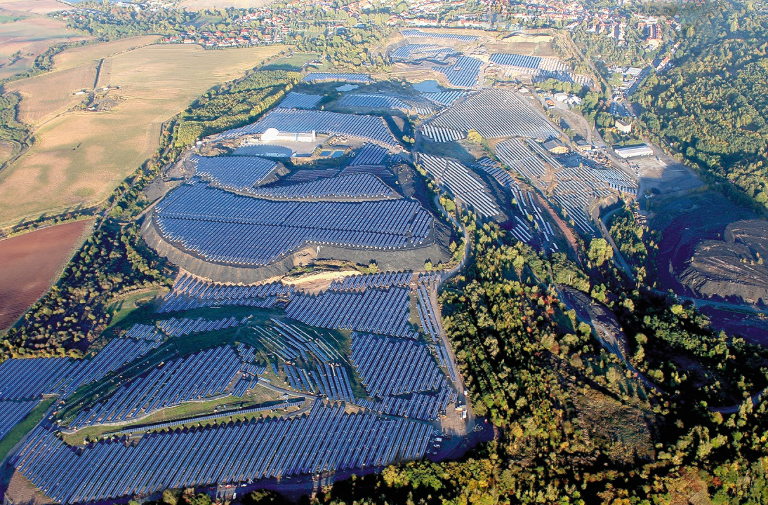The share of renewable energies in global electricity generation increased again last year and capacity financed by investments even reached a record level in 2019, according to a recent report on global investments in renewables, EURACTIV Germany reports.
Last year, around $280 billion was invested worldwide in the expansion of renewable energies – 1% more than the previous year, but around 10% less than in the record year 2017.
This is illustrated by the report “Global Trends in Renewable Energy Investment 2020,” presented on Wednesday (10 June) by the UNEP Collaborating Centre of the Frankfurt School of Finance & Management and the Federal Ministry for the Environment, Nature Conservation and Nuclear Safety (BMU).
The report highlights future trends as it looks at capacities that were financed last year but will only be achieved in the coming years.
Despite an almost constant level of investment, the financed capacity reached a record level of 184 gigawatts last year.
“This shows that such investments become more attractive,” says Professor Dr Ulf Moslener, co-editor of the report and scientific director of the Frankfurt School-UNEP Collaborating Centre. For the same investment as in 2018, it was possible to obtain around 12% more capacity last year.
Wind and solar energy account for the largest share
Around two-thirds of the 184 gigawatts in 2019 were accounted for by solar energy. This means that, despite a slightly lower level of investment than in the previous year, the energy source reached the highest value of financed capacity to date.
In the area of wind power, not only did investments rise to a record level last year, but the financed capacity also reached an all-time high in 2019.
“Wind and solar energy are becoming cheaper and cheaper and are developing into a competitive clean alternative to fossil fuels worldwide,” said German Environment Minister Svenja Schulze (SPD).
However, the global upward trend stands in contrast to the figures from Germany, where investment in renewable energies fell by around 30% last year compared to 2018. The wind energy sector, in particular, saw a sharp drop in investment, due to prolonged discussions about regulations for the expansion of wind turbines.
Karsten Sach, head of the BMU’s Department of International Affairs, Europe, and Climate Protection, is also confident. “I believe we will succeed in stimulating a new spirit of optimism in the industry in Germany as well, through financial incentives and the resolution of political differences.”
Germany ahead in European comparisons
Investment in renewable energy capacities in Europe also fell last year compared to 2018. In addition to Germany, England experienced a 40% slump in investment. In contrast, the report documented a 25% increase in investment for Spain and the Netherlands compared to 2018.
Germany ranked fourth behind China, the USA and Japan in the world in terms of investment volume.
Although renewable energies are exceeding fossil fuels in terms of investment and generating greater volumes of electricity, the report shows that the road to ecological transformation is still long.
Despite a peak in financed capacities and a slight increase on the previous year, only around 13% of the world’s electricity demand was covered by renewable energies in 2019.
Moslener therefore appealed to governments, companies and consumers not to let up now: “The Paris climate targets are more than just political goals. They are intended to avert serious harm to people”.
According to experts, even the commitment by 87 governments to create additional new capacities for 826 gigawatts of renewable energies by 2030 is not enough to counteract climate change.
“These targets and investments fall far short of what is needed to combat climate change,” said Christine Grüning of the Frankfurt School.
Renewable energies “at a crossroads”
“Renewable energies are at a crossroads,” said Moslener. Now that numerous economic stimulus packages to combat the pandemic have been adopted, it is important to invest in climate protection in the long term, he said, especially as increasing generation capacity is cheaper than ever before.
Both the European Commission’s recovery plan and the economic stimulus package presented by the German government last week offer hope that politicians will recognize this opportunity.
“A decisive boost will come when we discuss at EU level how we can manage to tighten up the EU climate targets. This will be the biggest task of the German Environmental Council Presidency, which we will tackle with great strength and confidence,” said BMU’s Sach.
[Edited by Benjamin Fox]
Teaser photo credit: By Parabel GmbH – Own work, CC BY-SA 3.0





